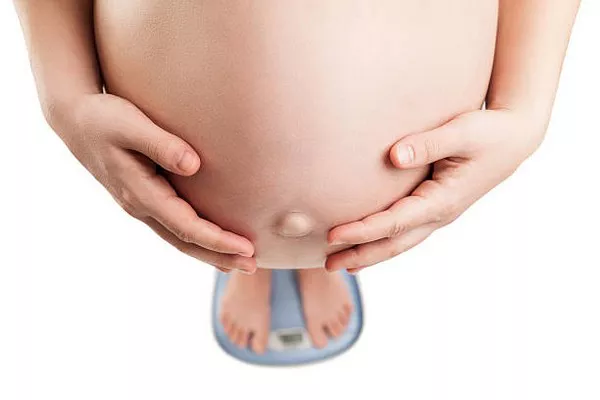Pregnancy and childbirth are life-altering experiences, both physically and emotionally. One common concern for many new mothers is how much weight they lose during delivery and how to manage their weight postpartum. This article provides a detailed examination of weight loss during delivery, along with practical fitness and weight loss suggestions to help new mothers regain their pre-pregnancy weight in a healthy manner.
Understanding Weight Loss During Delivery
What Happens During Delivery?
During delivery, the weight loss you experience is primarily due to the following factors:
Baby’s Weight: The most significant loss comes from the baby’s birth weight. On average, newborns weigh between 5.5 to 8.8 pounds (2.5 to 4 kg).
Amniotic Fluid: Amniotic fluid, which cushions the baby in the womb, is also expelled during delivery. This fluid can weigh around 1 to 2 pounds (0.45 to 0.9 kg).
Placenta: After the baby is born, the placenta is delivered, which typically weighs about 1 to 2 pounds (0.45 to 0.9 kg).
Blood Loss: While not a major factor, some weight is lost through blood loss during delivery. The average amount is around 1 to 2 pounds (0.45 to 0.9 kg).
Overall, you can expect to lose between 8 to 15 pounds (3.6 to 6.8 kg) during delivery. However, this can vary depending on factors such as the baby’s weight, the amount of amniotic fluid, and individual circumstances.
Postpartum Weight Loss: What to Expect
Immediate Postpartum Period
After delivery, the immediate weight loss may be noticeable, but there is still a considerable amount of weight retained. This retention is due to:
Fluid Retention: Your body retains fluids during pregnancy, which takes time to be expelled. This can contribute to a weight that seems higher than expected right after childbirth.
Uterine Size: The uterus needs time to return to its pre-pregnancy size. This process, known as involution, can take several weeks.
Long-Term Weight Loss
Achieving your pre-pregnancy weight is a gradual process. On average, new mothers may take 6 to 12 months to return to their pre-pregnancy weight. Factors affecting this timeline include:
Metabolism: Metabolism can be slower postpartum, affecting how quickly you burn calories.
Diet and Exercise: Your diet and physical activity levels play a crucial role in weight loss.
Hormones: Hormonal changes can impact weight loss and appetite.
Effective Fitness and Weight Loss Strategies
Consult Your Healthcare Provider
Before starting any postpartum fitness program or weight loss plan, consult with your healthcare provider. They can provide personalized advice based on your health, delivery experience, and recovery.
Start with Gentle Exercises
In the early postpartum period, focus on gentle exercises that are safe and promote recovery:
Walking: Begin with short walks around the house or neighborhood. Gradually increase the duration and intensity as you feel comfortable.
Pelvic Floor Exercises: Strengthening the pelvic floor can aid in recovery and improve bladder control. Kegel exercises are particularly effective.
Gentle Stretching: Incorporate light stretching to help with muscle stiffness and improve flexibility.
Build a Structured Exercise Routine
As you progress in your postpartum recovery, gradually introduce more structured exercise routines:
Cardiovascular Exercise: Engage in moderate-intensity cardio exercises like brisk walking, swimming, or cycling. Aim for at least 150 minutes of moderate-intensity exercise per week.
Strength Training: Incorporate strength training exercises to build muscle and boost metabolism. Focus on exercises that target major muscle groups, such as squats, lunges, and resistance band exercises.
Core Strengthening: Strengthen your core muscles with exercises like planks, modified crunches, and leg raises. This helps in restoring core strength and stability.
See Also: Why Do You Lose Weight Breastfeeding
Prioritize Nutrition
A balanced diet is essential for postpartum weight loss and overall health:
Hydration: Drink plenty of water to stay hydrated and support your body’s recovery process.
Balanced Meals: Focus on eating a variety of nutrient-dense foods, including fruits, vegetables, lean proteins, and whole grains.
Healthy Snacking: Choose healthy snacks like nuts, yogurt, and fruit to keep your energy levels up and manage hunger.
Avoid Excessive Calorie Cutting: While it’s important to manage calorie intake, avoid drastic calorie reductions. Ensure you’re getting enough calories to support breastfeeding if applicable.
Manage Stress and Sleep
Stress and lack of sleep can impact weight loss and overall well-being:
Stress Management: Engage in relaxation techniques such as deep breathing, meditation, or gentle yoga to manage stress.
Adequate Sleep: Aim for sufficient rest to support recovery and weight loss efforts. Establish a regular sleep routine and seek support from family or friends if needed.
Set Realistic Goals
Set achievable and realistic goals for your postpartum weight loss journey:
Short-Term Goals: Focus on small, manageable goals like increasing exercise duration or improving dietary habits.
Long-Term Goals: Aim for gradual weight loss, targeting about 1 to 2 pounds (0.45 to 0.9 kg) per week. This is a healthy and sustainable rate.
Common Challenges and Solutions
Lack of Time
Finding time for exercise can be challenging with a new baby:
Incorporate Activity into Daily Routines: Take advantage of opportunities for physical activity throughout the day, such as carrying your baby in a carrier while doing household chores.
Short Workouts: Opt for shorter, high-intensity workouts if you have limited time. Even 10-15 minutes of exercise can be effective.
Emotional Eating
Emotional eating can hinder weight loss efforts:
Mindful Eating: Practice mindful eating by paying attention to hunger cues and eating slowly.
Seek Support: Consider speaking with a counselor or joining a support group if you’re struggling with emotional eating.
Conclusion
Understanding how much weight you lose during delivery and implementing effective postpartum fitness and weight loss strategies are key to achieving a healthy weight post-pregnancy. By following a balanced approach that includes gentle exercises, proper nutrition, stress management, and realistic goal setting, new mothers can successfully navigate their postpartum weight loss journey. Always consult with your healthcare provider before starting any new fitness or weight loss program to ensure it aligns with your individual needs and recovery.


